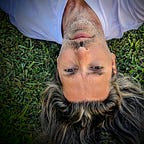Being An Alien (Life Lessons — 1/13)
In 1985 my family moved from Basel in Switzerland where we had spent eight years too Linz in Austria. I was ten years old at the time and it was the first important turning points in my life.
Life in Basel had been very sheltered and inspiring. We lived in a house with people that had quickly become close friends who we spent holidays with and I experienced a lot of dynamic intellectual discourse in any field between natural sciences and politics.
This changed a lot when we moved to Austria. The Austrian culture is dramatically different from the Swiss when experiencing it from the inside. This difference stems from a lack of self-confidence that the entire Austrian society seems to suffer from.
One of the symptoms can be observed in the daily news which was an important element in our family lives. As a final element in each broadcast the presenter highlighted one thing in which Austria was presumably a global leader. Another way the cultural difference expresses is in an unusual subordination towards authority and title which can be felt in anything between going shopping where people with a title attached to their name receive special treatment all the way to the relationship between teachers and students at school.
What I quickly came to learn as a naive ten year old kid with no experience of people judging other people based on their appearance or culture, is that there seems to be a special problem with germans within the Austrian culture. As soon as I opened my mouth to speak, it became evident that I was different. While in theory we all spoke German, the Austrian accent and what I had learned as German seemed to be from two entirely different planets.
As a result I was marked as the outsider, as the weirdo, as the one no-one wanted to play or be with. This was very disturbing to me because up until that point I had never given a second thought to my language. In fact, in Switzerland I hadn’t even been aware of the fact that I spoke differently from my friends. We just were — we played and enjoyed life.
Now I was alone.
This offered me a unique perspective into the group of children I was part of since they were my classmates. I was not part of that group, did not play any role in the social dynamics except when one of the bullies decided to use me as a way to show his dominance as a leader by treating me like scum or beating me up.
I could observe how they interacted, how the leaders got into their position as a leader, how they protected that position, how they were challenged, what the benefits and downsides of the position was, etc. — and I could also observe the behaviour inside the rest of the group. In hindsight I was probably in a similar position like an ethnologist on a field trip in hunter gatherer tribe or Jane Goodall with her chimpanzees.
Of course I didn’t see it that way then. Instead, I suffered. A lot. It does not feel good to be made the outsider, to be completely and utterly alone. But then, one summer break I decided to try an experiment. I consciously assimilated myself. I learned how to speak the accent, I practiced the jokes, the slang, the gestures of the leaders — and when it was time to go back to school, I totally changed my position from outsider to leader.
Of course, on the inside I was unchanged. I was the same. It was an experiment that taught me a lot about how humans interact and how easily we humans can be influenced by minor signals like language, style of clothing or hairstyle, skin color or other similar signals.
Experiencing this first hand was the strongest lesson life had handed me at that age. Today I am grateful for it although it was tough at the time.
